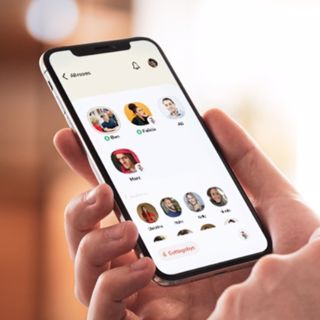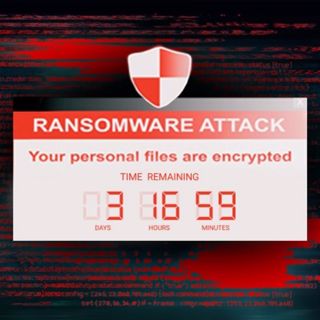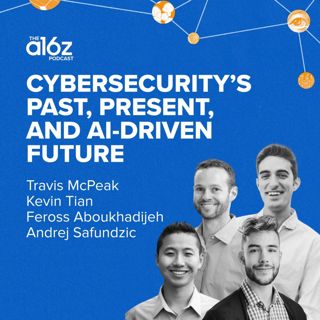
On Monetizing Community with Patreon Cofounder Sam Yam
It's clear from the growth of Patreon, Substack, TikTok, Clubhouse and many more that the power of the Creator Economy continues to build. These platforms share one thing in common: They all enable independent creators to monetize their skills and products like never before. It's a trend that’s become increasingly relevant as the demand for virtual work grows.In this episode, first published a year ago, Patreon cofounder Sam Yam, Atelier Ventures' Li Jin (formerly a16z), and host Lauren Murrow discuss monetizing community, why creators today are effectively making more money off fewer fans, and what all of this means for the future of work.The discussion is based on The Passion Economy and the Future of Work, a popular essay that first ran on a16z.com in October 2019. Check out that post and more creator content at: a16z.com/creatoreconomy. Stay Updated:Find a16z on XFind a16z on LinkedInListen to the a16z Podcast on SpotifyListen to the a16z Podcast on Apple PodcastsFollow our host: https://twitter.com/eriktorenberg Please note that the content here is for informational purposes only; should NOT be taken as legal, business, tax, or investment advice or be used to evaluate any investment or security; and is not directed at any investors or potential investors in any a16z fund. a16z and its affiliates may maintain investments in the companies discussed. For more details please see a16z.com/disclosures. Hosted by Simplecast, an AdsWizz company. See pcm.adswizz.com for information about our collection and use of personal data for advertising.
8 Apr 202126min

The Creator Economy: NFTs and Beyond
In today’s episode of the a16z Podcast, we’re talking about the Creator Economy, and how NFTs (but not just NFTS!) are making it possible for artists, musicians, videogamers, game developers, and writers to create entirely new markets to make money from their work and engage with their fans.Part of this emerging picture is social tokens, which share a crypto foundation with NFTs, but unlike NFTs (which are non-fungible tokens, in which each token is unique), social tokens are typically fungible, meaning each token has the same value. (Listen to our explainer episode "All About NFTs" with Sonal Choksi, Jesse Walden, and Linda Xie, or see our curated NFT Canon for much more info on NFTs!)This hallway-style chat features a16z General Partner and crypto investor Chris Dixon, talking with Kevin Chou, who founded Kabam, and is the founder of Rally, an open network on Ethereum where creators can launch social tokens; and Jesse Walden, the founder of MediaChain, a music rights protocol that was acquired by Spotify; he’s now the founder of crypto venture fund Variant.They’ll talk about how musicians, artists, and writers can think about NFTs and social tokens as well, and how those different types of assets can interact to create models that haven’t existed before.But Chris starts off the discussion by talking about the emergence of crypto tokens, and a look at how videogames and gamers were early to the idea of community engagement and digital assets, and how that model is beginning to spread outward. Stay Updated:Find a16z on XFind a16z on LinkedInListen to the a16z Podcast on SpotifyListen to the a16z Podcast on Apple PodcastsFollow our host: https://twitter.com/eriktorenberg Please note that the content here is for informational purposes only; should NOT be taken as legal, business, tax, or investment advice or be used to evaluate any investment or security; and is not directed at any investors or potential investors in any a16z fund. a16z and its affiliates may maintain investments in the companies discussed. For more details please see a16z.com/disclosures. Hosted by Simplecast, an AdsWizz company. See pcm.adswizz.com for information about our collection and use of personal data for advertising.
3 Apr 202133min

All about NFTs
This episode is all about NFTs. It seems like nothing has caught on and spread into mainstream interest like NFTs, where one hears everything from "I've never seen anything like this before" to "is this like ICOs all over again" to "it's just a jpg I don't get it" to "but what about the energy use!"So, in this special deep-dive episode from the a16z Podcast network, we break down everything you need or want to know about NFTs -- while cutting through the noise for what’s hype/ what’s real, as well as where are on the long arc (and sometimes seemingly sudden tipping point!) of innovation (apparently, Google trends data showed that interest in NFTs recently surpassed interest in cryptocurrency). Editor in chief Sonal Chokshi interviews friends of a16z crypto Linda Xie, co-founder of Scalar Capital and former Product Manager at Coinbase; and Jesse Walden, founder at Variant Fund and former co-founder of Mediachain Labs (which was acquired by Spotify, where he was then an R&D lead).Posted on both the a16z Podcast show and 16 Minutes -- as one of our "2-3x explainer episodes" of topics that keep coming up over and over again in the news (past such episodes have covered everything from Section 230 and Tiktok to GPT-3 and the opioid crisis) -- this episode covers:what NFTs (non-fungible tokens) are -- as well as the properties of crypto that enable them, just to set some big-picture context;what forms they take, and what is and ISN’T an NFT -- including where “social tokens” and the creator economy do and don’t come in;common myths and misconceptions -- from ‘just a jpg’ to the frequent question of energy use & NFTs;how they work -- as well as the broader ecosystem around NFTs, and different players;various applications, now and next -- touching briefly on how to think about NFTs, whether you’re an artist/ creator, developer, or institution....This episode is for everyone!transcript available at: https://a16z.com/2021/03/27/nfts-explainer-faqs-hype-reality-innovation-crypto-creator-economyimage: Mona Lisa/ Creative Commons 4.0; changes made by Greg Truesdell per Sonal Chokshi, who dubbed it "The First 500 Years" as a nod to Beeple's "The First 5000 Days"The views expressed here are those of the individual AH Capital Management, L.L.C. (“a16z”) personnel quoted and are not the views of a16z or its affiliates. Certain information contained in here has been obtained from third-party sources, including from portfolio companies of funds managed by a16z. While taken from sources believed to be reliable, a16z has not independently verified such information and makes no representations about the enduring accuracy of the information or its appropriateness for a given situation. In addition, this content may include third-party advertisements; a16z has not reviewed such advertisements and does not endorse any advertising content contained therein.This content is provided for informational purposes only, and should not be relied upon as legal, business, investment, or tax advice. You should consult your own advisers as to those matters. References to any securities or digital assets are for illustrative purposes only, and do not constitute an investment recommendation or offer to provide investment advisory services. Furthermore, this content is not directed at nor intended for use by any investors or prospective investors, and may not under any circumstances be relied upon when making a decision to invest in any fund managed by a16z. (An offering to invest in an a16z fund will be made only by the private placement memorandum, subscription agreement, and other relevant documentation of any such fund and should be read in their entirety.) Any investments or portfolio companies mentioned, referred to, or described are not representative of all investments in vehicles managed by a16z, and there can be no assurance that the investments will be profitable or that other investments made in the future will have similar characteristics or results. A list of investments made by funds managed by Andreessen Horowitz (excluding investments for which the issuer has not provided permission for a16z to disclose publicly as well as unannounced investments in publicly traded digital assets) is available at https://a16z.com/investments/.Charts and graphs provided within are for informational purposes solely and should not be relied upon when making any investment decision. Past performance is not indicative of future results. The content speaks only as of the date indicated. Any projections, estimates, forecasts, targets, prospects, and/or opinions expressed in these materials are subject to change without notice and may differ or be contrary to opinions expressed by others. Please see https://a16z.com/disclosures for additional important information. Stay Updated:Find a16z on XFind a16z on LinkedInListen to the a16z Podcast on SpotifyListen to the a16z Podcast on Apple PodcastsFollow our host: https://twitter.com/eriktorenberg Please note that the content here is for informational purposes only; should NOT be taken as legal, business, tax, or investment advice or be used to evaluate any investment or security; and is not directed at any investors or potential investors in any a16z fund. a16z and its affiliates may maintain investments in the companies discussed. For more details please see a16z.com/disclosures. Hosted by Simplecast, an AdsWizz company. See pcm.adswizz.com for information about our collection and use of personal data for advertising.
28 Mars 202156min

The Next Wave of Marketplace Startups
In the tech world, marketplaces are a hot topic. That term—marketplace—encompasses a huge swath of services we use every day, from grocery delivery to online shopping to remote learning. How have marketplace dynamics changed since pre-pandemic, and what COVID-propelled consumer behaviors will persist into 2021 and beyond? In this episode, we discuss the most promising marketplace companies and categories on the rise, based on data from the Marketplace 100, a ranking of the largest and fastest-growing consumer-facing marketplace startups and private companies.The report provides rich fodder for looking ahead at the future of marketplaces: Which companies are on a tear and which are locked in close competition? Which marketplace categories are poised for growth, and which may make a comeback? Host Lauren Murrow is joined by a16z consumer team partners Connie Chan, D’Arcy Coolican, Jeff Jordan, and Sriram Krishnan. Stay Updated:Find a16z on XFind a16z on LinkedInListen to the a16z Podcast on SpotifyListen to the a16z Podcast on Apple PodcastsFollow our host: https://twitter.com/eriktorenberg Please note that the content here is for informational purposes only; should NOT be taken as legal, business, tax, or investment advice or be used to evaluate any investment or security; and is not directed at any investors or potential investors in any a16z fund. a16z and its affiliates may maintain investments in the companies discussed. For more details please see a16z.com/disclosures. Hosted by Simplecast, an AdsWizz company. See pcm.adswizz.com for information about our collection and use of personal data for advertising.
24 Mars 202127min

The Third Vaccine, and Vaccine Choice
https://a16z.com/2021/03/15/16-minutes-58-the-johnson-johnson-vaccine-and-covid-efficacy-rates/ Stay Updated:Find a16z on XFind a16z on LinkedInListen to the a16z Podcast on SpotifyListen to the a16z Podcast on Apple PodcastsFollow our host: https://twitter.com/eriktorenberg Please note that the content here is for informational purposes only; should NOT be taken as legal, business, tax, or investment advice or be used to evaluate any investment or security; and is not directed at any investors or potential investors in any a16z fund. a16z and its affiliates may maintain investments in the companies discussed. For more details please see a16z.com/disclosures. Hosted by Simplecast, an AdsWizz company. See pcm.adswizz.com for information about our collection and use of personal data for advertising.
18 Mars 202112min

Companies & Culture: What You Do Is Who You Are
This podcast -- which was recorded at the Computer History Museum in a live event, before the pandemic (first published in December 2019) is all about how companies create culture: A lot's changed... and a lot hasn't. a16z editor in chief Sonal Chokshi interviews a16z co-founder Ben Horowitz -- author of the book What You Do Is Who You Are -- on whether companies and people can change; how the very thing that is your strength can also be your weakness; how startups evolve from pirates to the navy; actions vs words and values; and more. The discussion also covers common tropes that often come up in Silicon Valley folklore -- whether it’s “fake it til you make it” and the “reality distortion fields” of visionaries… vs. liars. Drawing on historical themes and examples from a thousand years ago to today -- spanning empires, wars, revolutions, hip-hop, and prisons -- the discussion covers key themes and nuances, as well as practical advice, on creating company culture. Please note -- especially if you’re listening on smart speakers at home with children or with kids in a car -- that the discussion that follows includes various mentions of violence. 100% of the proceeds of the book go to anti-recidivism as well as towards helping Haiti. Nick Quah, writer and publisher of Hot Pod (also at Vulture) joins a16z general partner Connie Chan -- and editor in chief (and showrunner of the a16z Podcast) Sonal Chokshi -- to talk about all this and more in this hallway-style jam. Stay Updated:Find a16z on XFind a16z on LinkedInListen to the a16z Podcast on SpotifyListen to the a16z Podcast on Apple PodcastsFollow our host: https://twitter.com/eriktorenberg Please note that the content here is for informational purposes only; should NOT be taken as legal, business, tax, or investment advice or be used to evaluate any investment or security; and is not directed at any investors or potential investors in any a16z fund. a16z and its affiliates may maintain investments in the companies discussed. For more details please see a16z.com/disclosures. Hosted by Simplecast, an AdsWizz company. See pcm.adswizz.com for information about our collection and use of personal data for advertising.
9 Mars 202159min

Boss Talk with Ben Horowitz
Boss Talk is a weekly live show on Clubhouse, where a16z cofounder Ben Horowitz and Databricks CEO Ali Ghodsi discuss CEO stuff, leadership stuff, management stuff… you know, boss stuff. Here we share the second installment; in it, they explain Conway’s Law and shipping your org chart; how to transition from a boss to a boss of bosses; and their predictions for Silicon Valley post-pandemic.For more episodes of Boss Talk and other conversations from a16z, check out our separate feed, a16z Live. Stay Updated:Find a16z on XFind a16z on LinkedInListen to the a16z Podcast on SpotifyListen to the a16z Podcast on Apple PodcastsFollow our host: https://twitter.com/eriktorenberg Please note that the content here is for informational purposes only; should NOT be taken as legal, business, tax, or investment advice or be used to evaluate any investment or security; and is not directed at any investors or potential investors in any a16z fund. a16z and its affiliates may maintain investments in the companies discussed. For more details please see a16z.com/disclosures. Hosted by Simplecast, an AdsWizz company. See pcm.adswizz.com for information about our collection and use of personal data for advertising.
28 Feb 202159min

All About Ransomware
In just the last couple years, ransomware has grown into a multibillion dollar industry. It has evolved from taking systems and servers hostage to stealing data, and it has proven capable of shutting down global organizations. In recent months, ransomware groups directly shut down Kia Motors North American IT systems; indirectly may have contributed to the death of a patient due to hospital ransomware; and allegedly stole sensitive files from a law firm whose clients include former President Trump.In this explainer episode, Tom Hofmann, the SVP of Intelligence at Flashpoint Intel (which monitors ransomware criminal syndicates and assists organizations with prevention and response) and a16z security operating partner cover: how ransomware works, from the anatomy of a hack to how the groups operate; the role of nation-states, insurers, and regulators; and what to do if your stuff is taken hostage.For more on cybersecurity, check out our coverage of organized cybercrime and hacks and our 16 step guide to protecting your data. Stay Updated:Find a16z on XFind a16z on LinkedInListen to the a16z Podcast on SpotifyListen to the a16z Podcast on Apple PodcastsFollow our host: https://twitter.com/eriktorenberg Please note that the content here is for informational purposes only; should NOT be taken as legal, business, tax, or investment advice or be used to evaluate any investment or security; and is not directed at any investors or potential investors in any a16z fund. a16z and its affiliates may maintain investments in the companies discussed. For more details please see a16z.com/disclosures. Hosted by Simplecast, an AdsWizz company. See pcm.adswizz.com for information about our collection and use of personal data for advertising.
25 Feb 202135min






















